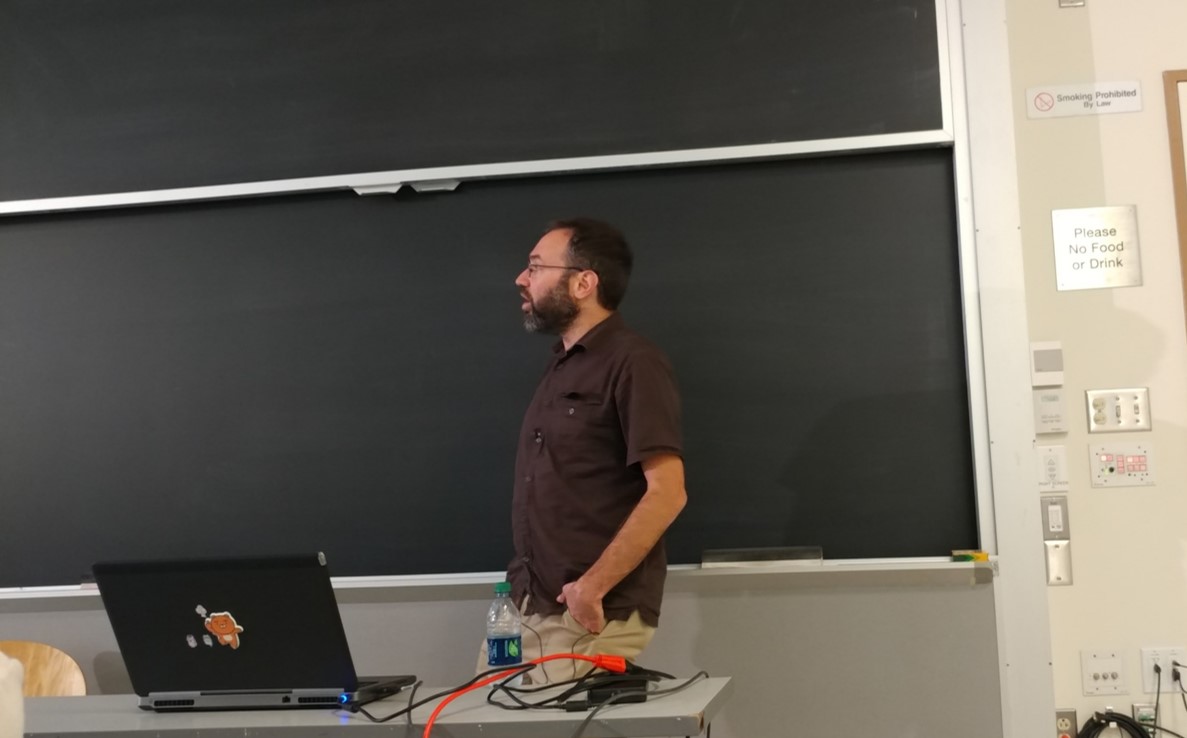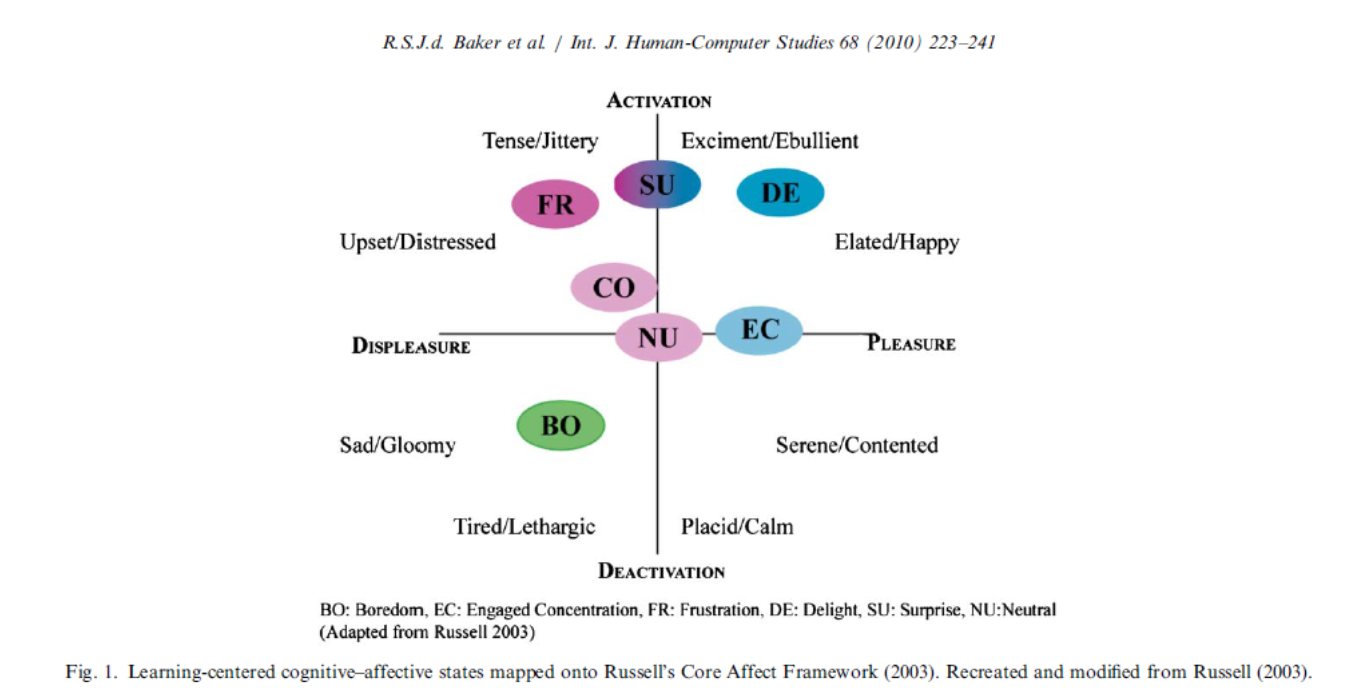
Ryan Baker, Associate Professor at the University of Pennsylvania and Director of the Penn Center for Learning Analytics, spoke at an MIT xTalk entitled “The dynamics of affect in online learning”. The talk centered on how student affect develops in complex ways as students use online and blended learning systems.
At the Penn Center for Learning Analytics, Baker studies student issues using data from a range of online learning systems and talks about how automated log file detection of affect is emerging as a key method for studying affect dynamics.
With current tools Baker can measure when students are bored, frustrated, and or confused. He can also tell when these same students are engaged and disengaged. “Math Blaster is a game, an award winning game, a very repetitive and boring award winning game,” said Baker.
The students are studied with facial coding systems to look at lip curls and eyebrow raises to know when students are in a state of boredom, frustration and confusion. The hope is to study whether boring systems are creating negative learning outcomes. “For example, in mathematics, boredom can hinder educational effectiveness, this is something we already know,” says Baker.
Baker stressed that engagement and boredom last much longer than confusion and frustration. “If you’re confused and frustrated for a long time, you’ll have negative learning outcomes,” he said. Those students may need interventions, anyone staying confused or frustrated for more than a couple of minutes can become so far off task that they won’t learn anything for an entire learning session. Interventions can be introduced to get those students back on track.

Baker’s Lab is responsible for research on engagement and robust learning within online and blended learning platforms. Using data, the team seeks actionable indicators that can be used to predict future student outcomes. For example, Baker explained how his team is working to determine not only whether students will go to college, but also what major they are most likely to select. Select data indicates that students most likely to game the system (i.e. guess correctly rather than study) are most likely to become business majors.